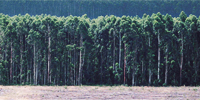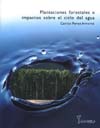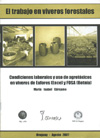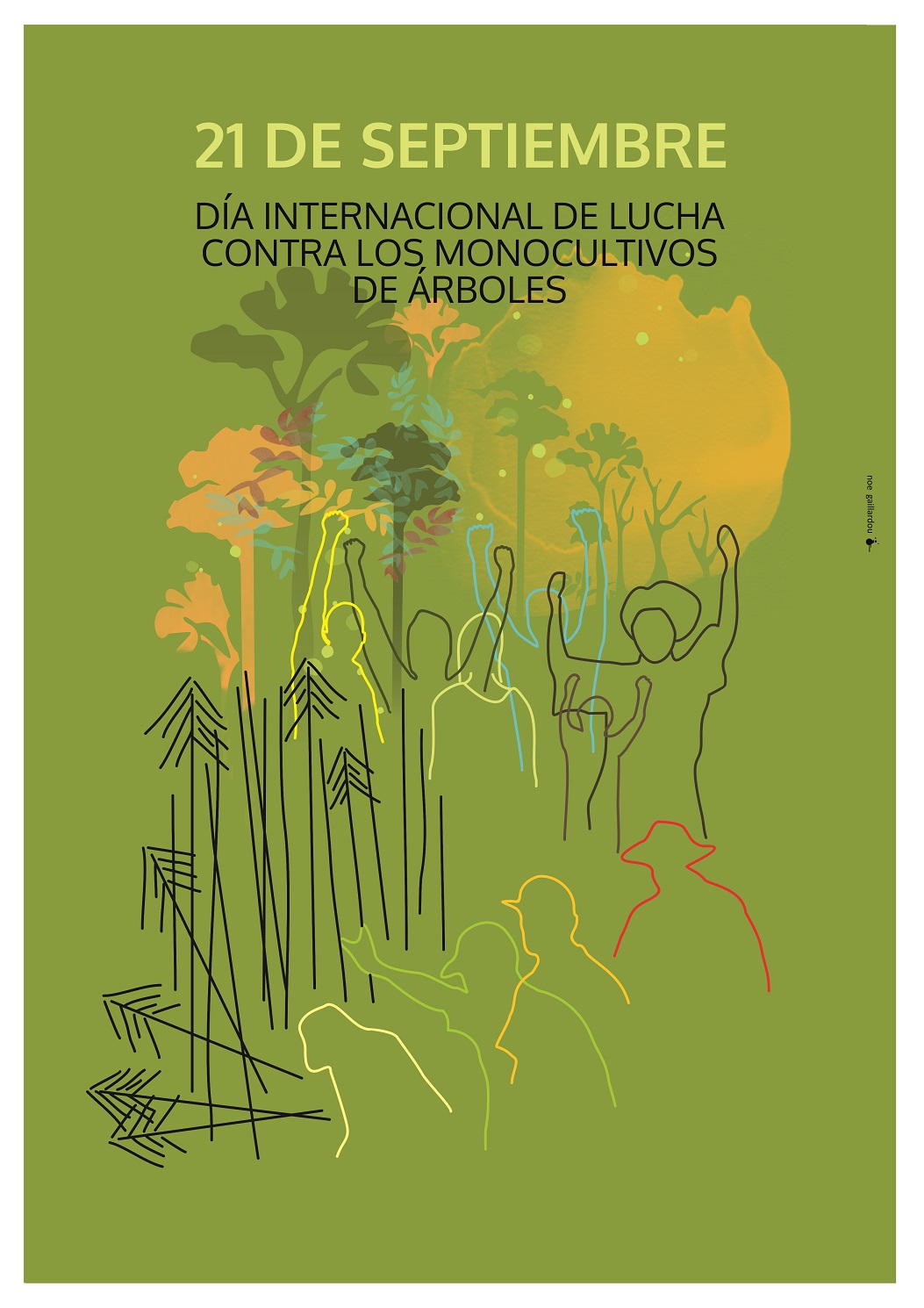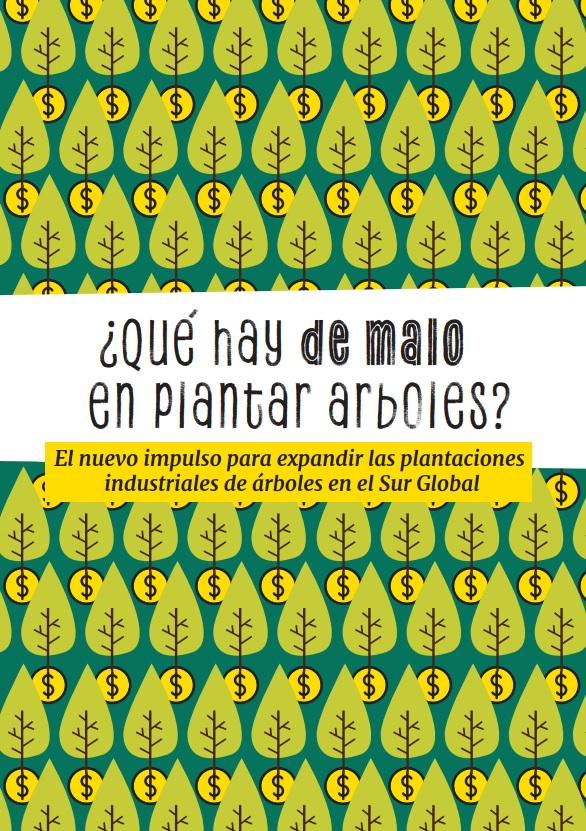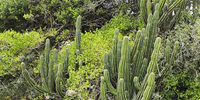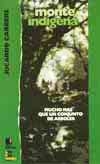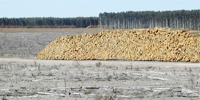Montevideo, January 20th, 2020.
Mr. Björn Wahlroos,
UPM President
The undersigned want to convey our deep indignation at the concepts expressed in your recently published book in Finland, which we learned from an article in a newspaper in Uruguay, entitled «The President of UPM says that the pulp industry has done «miracles» in Uruguay» (Natalia Uval, La Diaria, January 18, 2020).
In your new book, published only in Finnish, you express your dissatisfaction with the growing social and environmental demands of your country, and for this purpose you resort as a contrast to a cartoon from Uruguay. If you had published this book in our country, it would simply be the laughing stock of the Uruguayans.
You already showed your ignorance in the interview granted to the Finnish newspaper Maaseudun Tulevaisuus, in April 2019, when you said that Uruguayans «love» the cellulosic industry “for its biodiversity: there are not many animals that live in the pastures, but now there are deer and wild boar that locals can hunt and enjoy ”.
Mr. Wahlroos, do you really know the biodiversity of the grasslands of our country or lie on purpose? Our main natural ecosystem is the grassland, also known as Bioma Pampa, where more than 2000 plant species and several hundred species of birds, reptiles and mammals coexist, it is being replaced by monoculture of trees for cellulose.
Tell us, please, Mr. Wahlroos, how many species of plants and animals can survive in eucalyptus plantations where they are planted at a rate of 1100 to 1400 eucalyptus per hectare? UPM plantations are silent «green deserts», since there are no birds that can live there. Don’t you know that wild boars are a plague in Uruguay, expanded thanks precisely to tree monocultures?
Your appreciations of Uruguayan history once again show a profound ignorance of the subject, but in that mistaken review your intention to convince Finns to abandon the «welfare state», which you regard as the greatest enemy of progress, is evident. Whose progress?
Your ignorance, or intentionality, manifests even more clearly when you attribute a positive bias in Uruguay’s economy to the arrival of the Finnish forestry industry in the 1990s, ignoring the country’s biggest economic crisis in 2002.
How can you say that the arrival of multinational forestry companies improved the situation in Uruguay?
Forestry companies have been exempt from taxes and pulp mills installed in special economic zones (free zones) as well. That way your activity does not translate into benefits other than for those companies.
Now the Uruguayan government is spending more than 3,000 million dollars in infrastructure works to facilitate the second UPM plant in the country that will be the largest in the world, with a production capacity of 2:100,000 annual tons of pulp and for whose operation Uruguay will not receive any benefits.
You justify that special situation, achieved in some way by your company in Uruguay, speaking of “miracles” and intends to transpose that situation to Finland for having worked here with a leftist government.
That is evident when you wonder why Finnish socialists cannot follow Uruguay´s example and name streets with the names of social democrats and communists but, «at the same time, make policies that favor economic growth».
In other words, what bothers you are the governments with social policies that benefit the working people because it reduces your business profits.
You just simply want to justify yourself, but neither Finland nor Uruguay have for you another attraction than allowing you to increase your profits. And if this does not happen, you will look for a place where you can do it and that will be the most wonderful country on the planet.
We are some of the many Uruguayans that today are working to cancel the disastrous business in our country that represent monoculture tree plantations for cellulose plants of multinationals such as UPM, which are increasingly involved in our institutions, in education and in labor relations, looking to take our country to a state of colonial dependence.
From Uruguay we tell you that we will do our best to achieve that goal.
Yours sincerely,
Movimiento por un Uruguay Sustentable (MOVUS)
Coordinación Nacional contra UPM
Comisión Nacional de Defensa del Agua y la Vida
Confederación de Pueblos Costeros
Movimiento ciudadano UPM2 NO
Colectivo Ñangapiré de San Gregorio de Polanco
Asamblea por el agua del río Santa Lucía
Asociación Civil Ambientalista de Salto (ACAS)
Colectivo No al tren de UPM
Comisión en defensa de la Laguna del Cisne
Comisión Rivera por la vida sustentable y el agua
Consejo de la Nación Charrúa
Ecofeminismos Río Negro
Grupo Guayubira
Movimiento de Protección Ambiental Sarandí del Yi
Casa de Filosofía
Clan Choñik
Revista La Bicicleta
El Faro.Colectivo Cultural de La Paloma
Asociación Civil Siempre Juntos de Barros Blancos
Periódico La Fragua
RAPAL/ Uruguay
Grupo Aguas de Cerro Largo
Asociación Uruguaya de Guardaparques (AUG)
Grupo Alas de Piriápolis
Maldonado por la Tierra y el Agua
Sociedad para la Conservacion de la Biodiversidad de Maldonado (SOCOBIOMA)
Colectivo Ecofeminista Dafnias
Campana Verde
Vecinos autoconvocados de La Paloma-Rocha
Mesa Nacional de Colonos
Colectivo Sanitario Andrés Carrasco ALAMES Argentina

